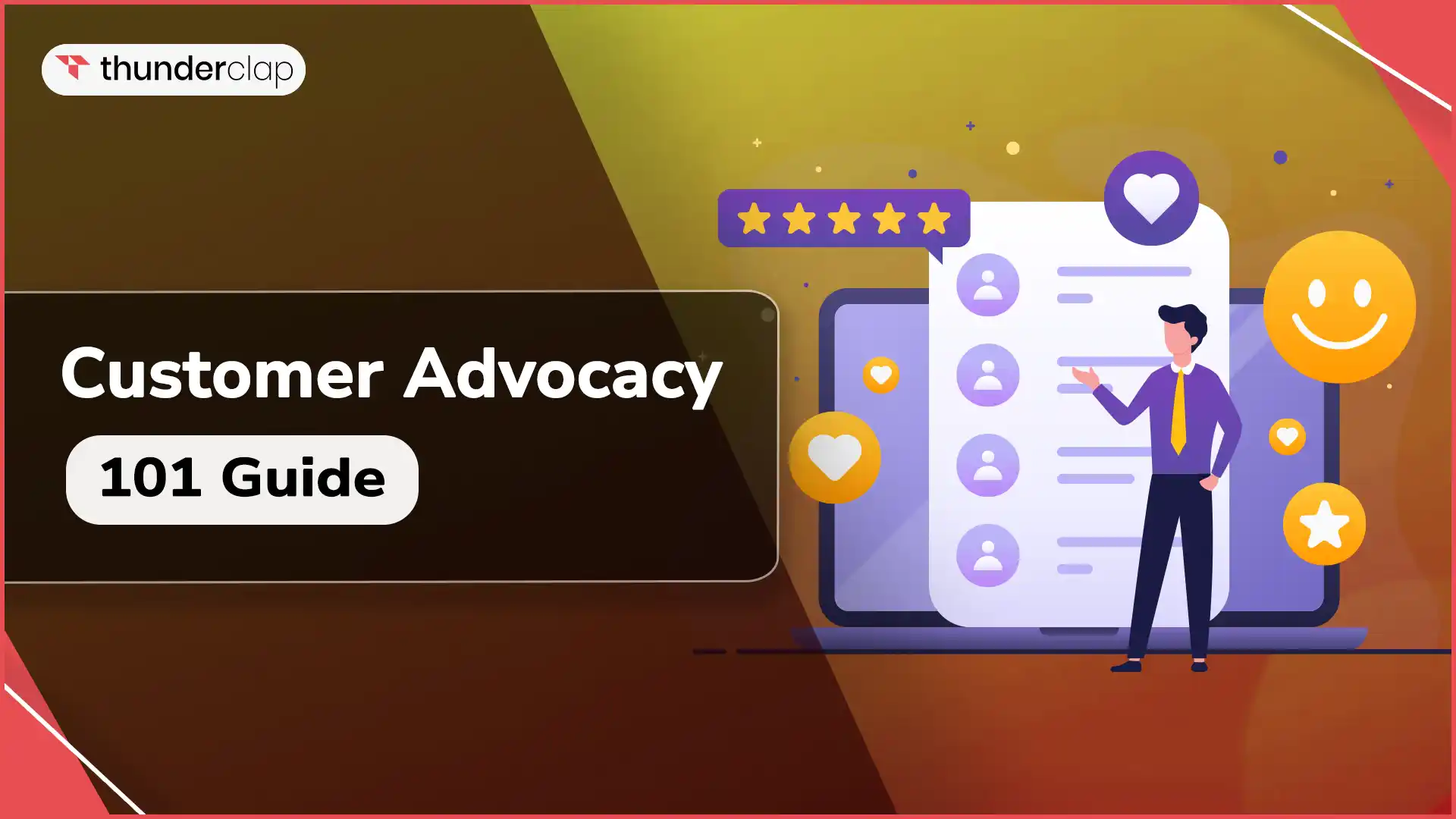Customer advocacy isn’t merely a passing trend; it’s the key to building a loyal customer base that fuels business growth. Here’s why cultivating a community of brand champions is essential:
-
Boosting Sales
Customer advocacy acts as a powerful sales engine by nurturing loyal customers who are more inclined to make repeat purchases, ensuring a steady revenue stream. Advocates, who spend up to twice as much as non-advocates, significantly boost the average customer value.
Additionally, they serve as effective promoters, influencing others through word-of-mouth marketing, thereby driving organic sales growth. By cultivating advocacy, businesses not only secure customer loyalty but also tap into a cost-effective marketing channel that fuels sales expansion.
-
Building Long-term Brand Loyalty
Beyond simple loyalty, customer advocacy fosters brand champions who actively promote and endorse your brand. Customer advocacy establishes a feedback loop that strengthens the bond between customers and the brand, enhancing brand loyalty.
This robust connection translates into long-term customer relationships, driving sustainable business growth. By prioritizing advocacy, businesses ensure that their brand experience remains authentic and centered on genuine customer relationships, laying the groundwork for enduring brand loyalty.
-
Improving Overall Customer Satisfaction
Customer advocacy thrives on satisfied customers who are eager to share their positive experiences. By consistently exceeding customer expectations and addressing their needs, businesses cultivate loyal advocates who amplify their praise.
This cycle of positive reinforcement deepens customer satisfaction, fostering a sense of community and continued positive interactions. As businesses continue to delight their customers, advocacy strengthens, leading to greater overall satisfaction across the customer base.
4. Reinforcing Customer Retention
Customer advocacy plays a crucial role in customer retention by fostering loyalty beyond mere brand allegiance. Through advocacy, businesses provide customers with additional incentives to remain loyal, ultimately enhancing customer lifetime value.
By nurturing advocacy, businesses create a loyal customer base that drives sustained business growth while ensuring ongoing customer satisfaction and loyalty.
5. Identifying Customer Needs Proactively
Customer advocacy is a crystal ball for predicting customer needs. By fostering open communication through advocacy programs, you gain valuable insights into customer preferences and potential roadblocks. This allows you to identify and address unmet needs before they become problems.
Remember, listening is just the first step. Taking action on this feedback and communicating those steps back to your advocates demonstrates your commitment to continuous improvement and strengthens the bond you share.
6. Minimising Customer Acquisition Costs
Leveraging customer advocacy reduces the need for expensive advertising by harnessing the power of satisfied customers to spread the word. Satisfied customers act as brand ambassadors, bringing in new customers through genuine endorsements and recommendations.
By turning advocates into brand ambassadors, businesses establish a free customer pipeline, effectively reducing acquisition costs while strengthening brand reputation.
7. Creating a Support System for Customers
Customer advocacy builds a support system by fostering a sense of community among customers. Empowering advocates in online forums or social media groups allows them to provide peer-to-peer support, answering questions and addressing concerns.
This enhances the overall customer experience and further inspires others to engage in advocacy, creating a positive cycle of support and strengthening customer relationships.
8. Increasing Brand Awareness
Advocacy serves as a powerful tool for increasing brand awareness by leveraging the enthusiasm of advocates to promote offerings within their networks. Trusted recommendations from advocates significantly influence purchasing decisions, leading to increased sales.
As advocates spread the word and build trust, they indirectly boost brand recognition and sales, creating a mutually beneficial cycle fueled by authentic customer endorsement power.




